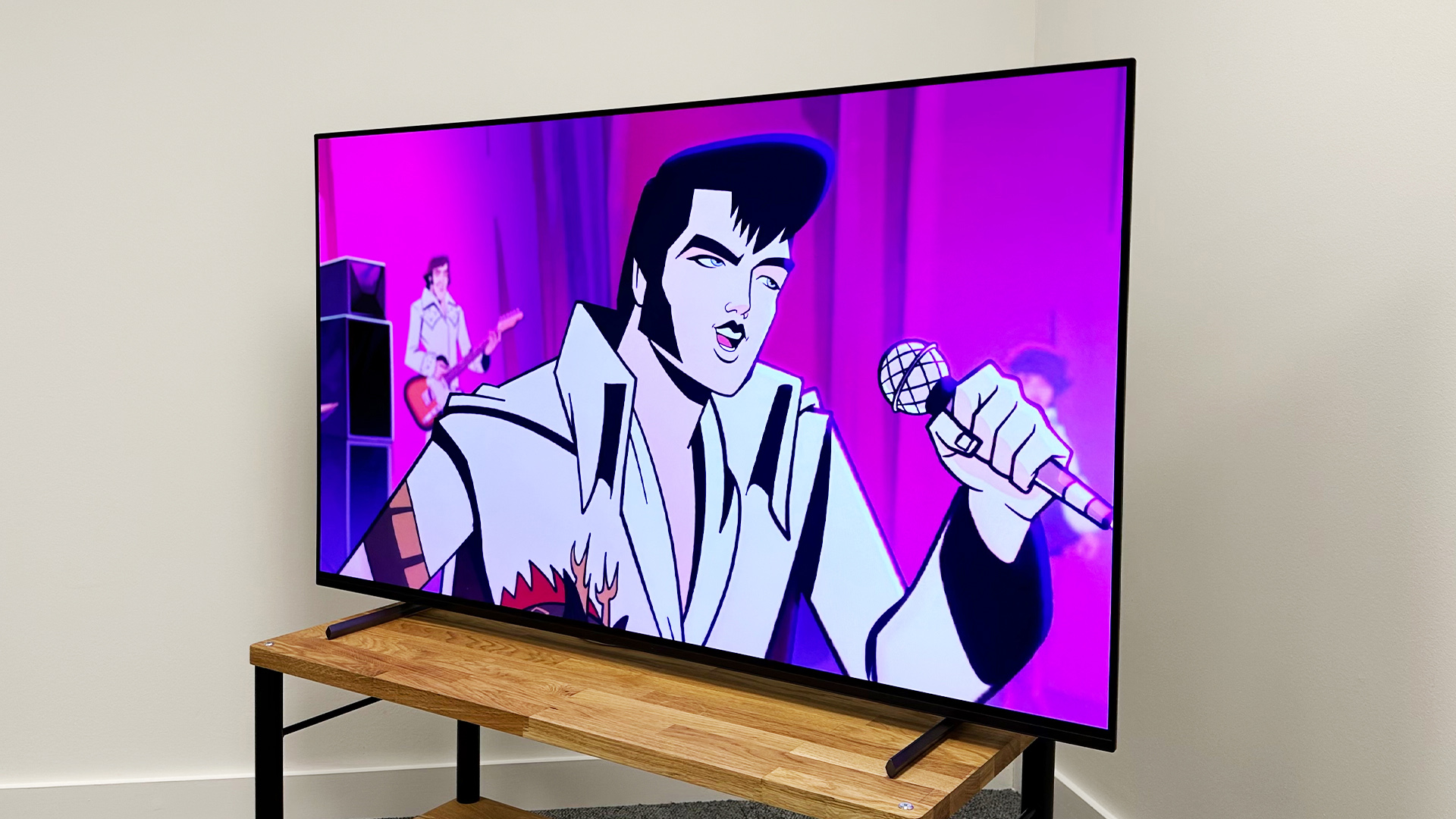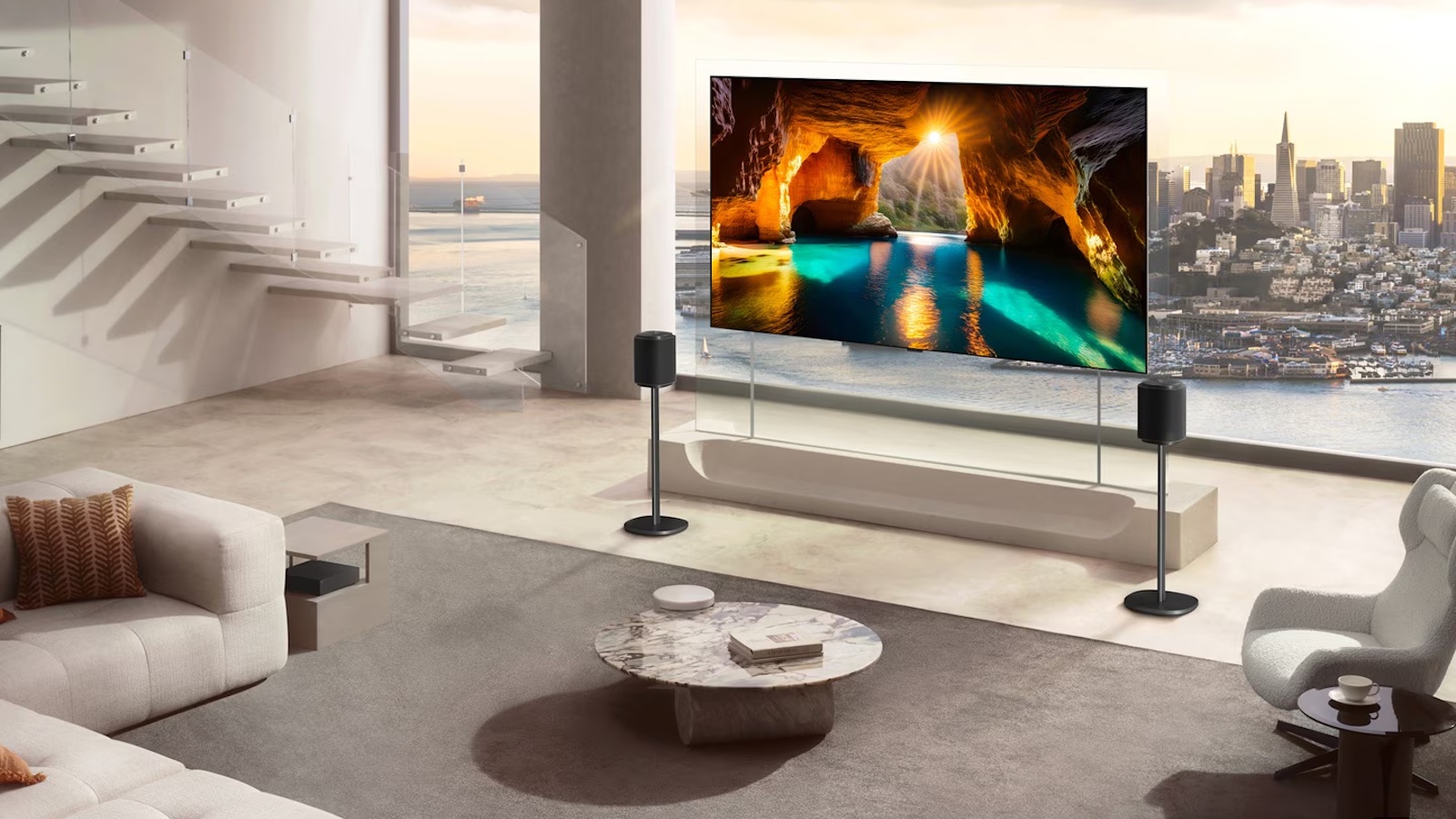2023 should have been the year of the cheap OLED TV – here's why it won't happen
Supply chain woes, a focus on the high-end and more compound my TV woes

2023 was shaping up to be a very exciting year for home cinema fans, and in many ways, that’s still true.
This is largely due to the arrival of several great new OLED TV technologies including Micro Lens Array (MLA). This was a key highlight of the Consumer Electronic Show (CES) in January. The short version is that it’s a clever new technology designed to help OLED TVs overcome their traditional perceived weakness – that it can’t go as bright as LCD panels.
Specifically, it can apparently let TVs in certain instances break the 2,000-nit barrier, which in layman’s terms means it can go twice as bright as most of the standard OLEDs we test. Having tested it on the LG G3, our experts can safely confirm MLA is very impressive and a great step forward for OLED TVs.
But, through all these positives, for me there’s one key negative I can’t ignore. Specifically, among all the positivity, I’m still yet to see any company deliver the dream product that I, and many of the readers and buyers I talk to, have been waiting for – a properly affordable OLED.
This may sound like a bit of a first-world problem; after all, QLED, which is based on LCD, is still on affordable sets and as we know having reviewed more TVs with the tech than I care to count, can be very impressive. But I can't help but feel it's a huge shame OLED is still only featured on more premium sets.
On the one hand, this is because it has been a long time since OLED first arrived on TVs in 2007. But on a personal point, it’s also because we got oh so close to seeing it happen in 2022. I personally know this having watched LG C2 prices like a hawk for pretty much the entire year, with the 48-inch model coming really close to hitting the sub-£600 mark at the end of the year, dropping to around £800 on Amazon after Black Friday. This tease made me sure we may finally see it happen this year.
But this sadly isn’t the case. Jump over to any of our LG TVs 2023, Sony TVs 2023, Panasonic TVs 2023, and Philips TVs 2023 range guides and you’ll see, in every list, OLED screen panels are only featured on the top-end sets. Anything less than £600 / $600 is still an LCD.
The latest hi-fi, home cinema and tech news, reviews, buying advice and deals, direct to your inbox.
TCL and Amazon, two companies I thought may finally jump on OLED and bring it to the affordable end of the market, also dashed my hopes, choosing to stick with QLED for the top sets in their respective ranges.
The reason for this is also hard to argue with. Every company I speak to is singing the same sad song, lamenting the ongoing supply chain issues and parts shortages that have hit all tech since the pandemic.
And being fair, TVs are not the only category of products struck by the issue. We saw it hit everything from top-of-the-line graphics cards and games consoles to smart home kit – for those short of memory, this was the reason there were massive PS5 stock shortages for so long after launch.
When it’s hard to get hold of something, it inevitably means prices for things that use it tend to go up rather than down. And, with that in mind, the cost of making even basic OLED panels has not gone down far enough to let sets using them hit mass-market price levels.
As a result, 2023 is almost certainly not going to be the year OLED hits the affordable end of the market – which is a huge shame, especially for cinema fans on a budget, like me, that oh so desperately yearn for the tech’s inky, perfect blacks when watching movies at home.
Here’s hoping we get better news in 2024…
MORE:
These are the best OLED TVs we've reviewed
These are the best cheap TVs currently available that we've tested

Alastair is What Hi-Fi?’s editor in chief. He has well over a decade’s experience as a journalist working in both B2C and B2B press. During this time he’s covered everything from the launch of the first Amazon Echo to government cyber security policy. Prior to joining What Hi-Fi? he served as Trusted Reviews’ editor-in-chief. Outside of tech, he has a Masters from King’s College London in Ethics and the Philosophy of Religion, is an enthusiastic, but untalented, guitar player and runs a webcomic in his spare time.
